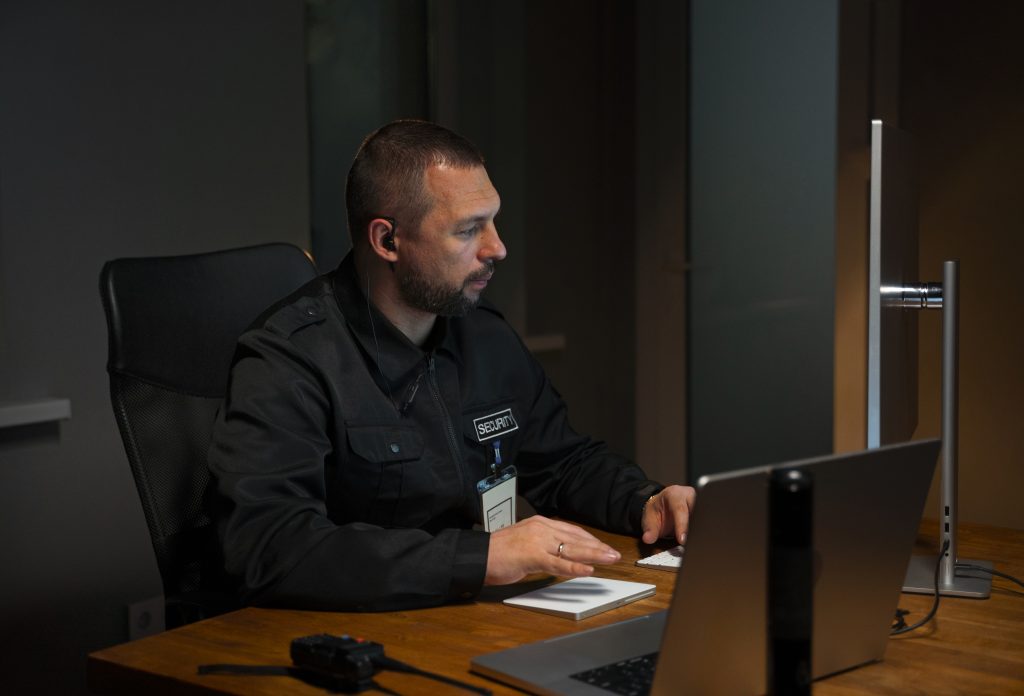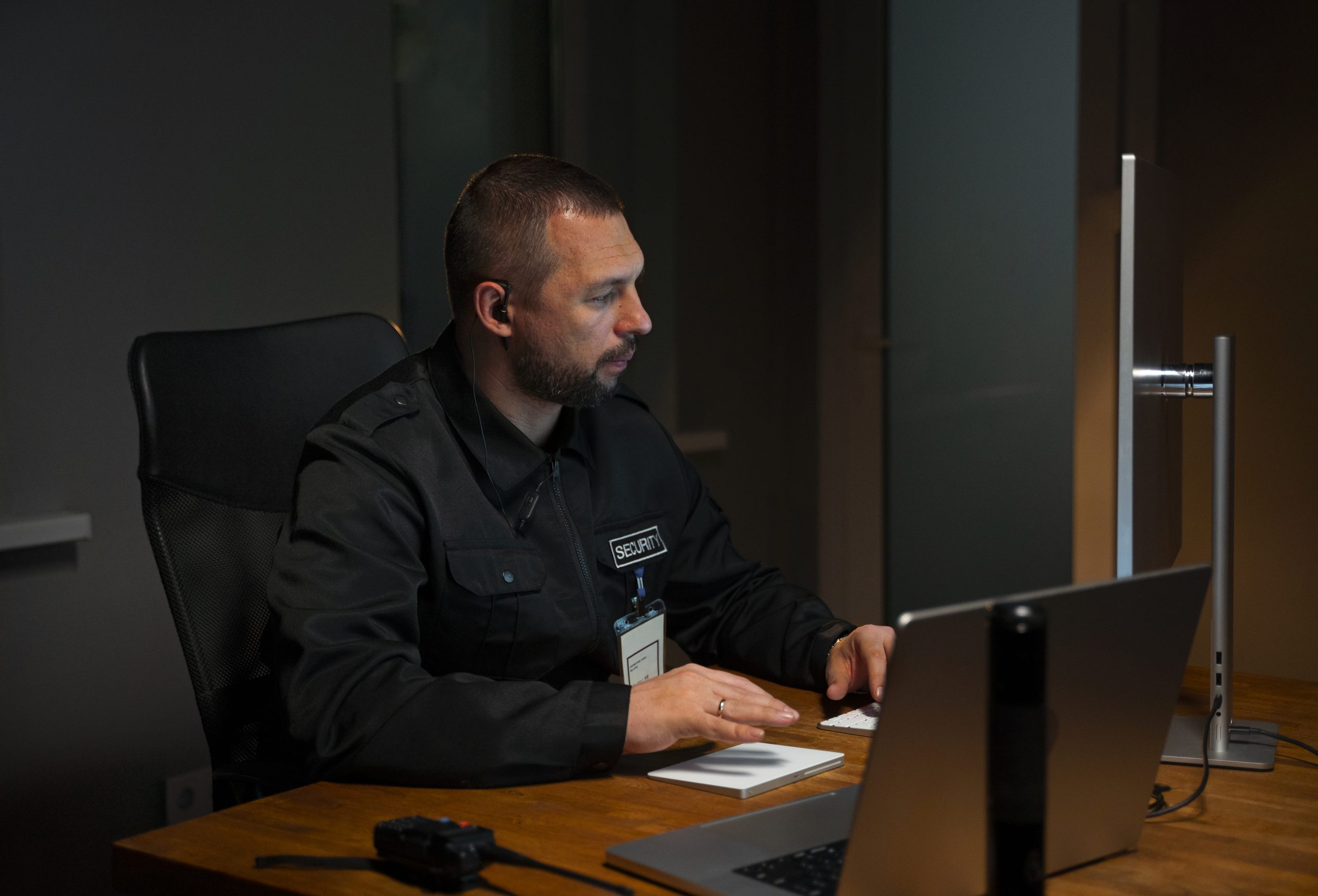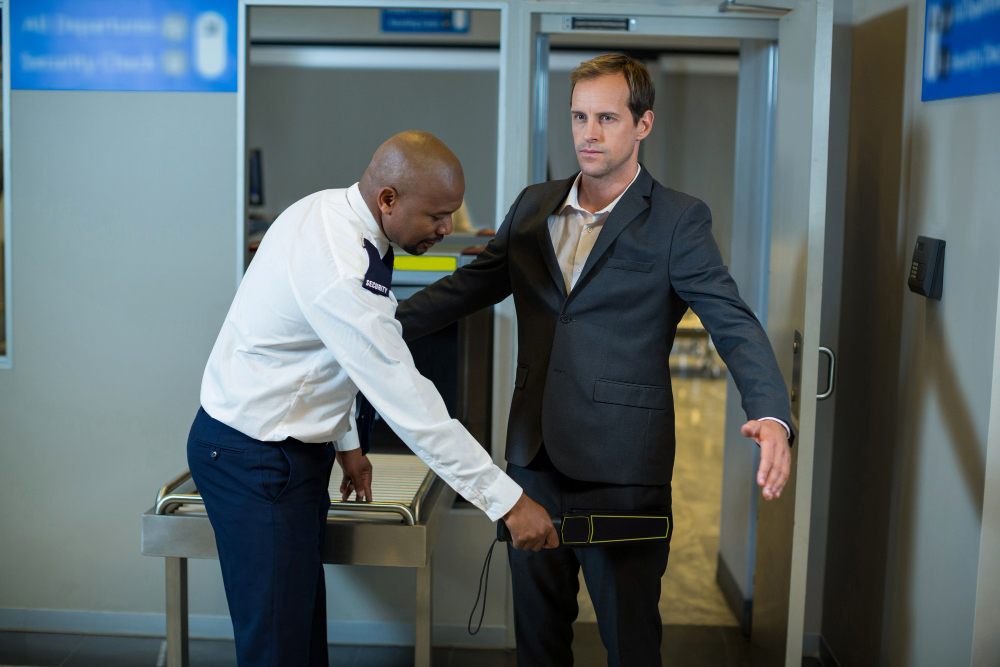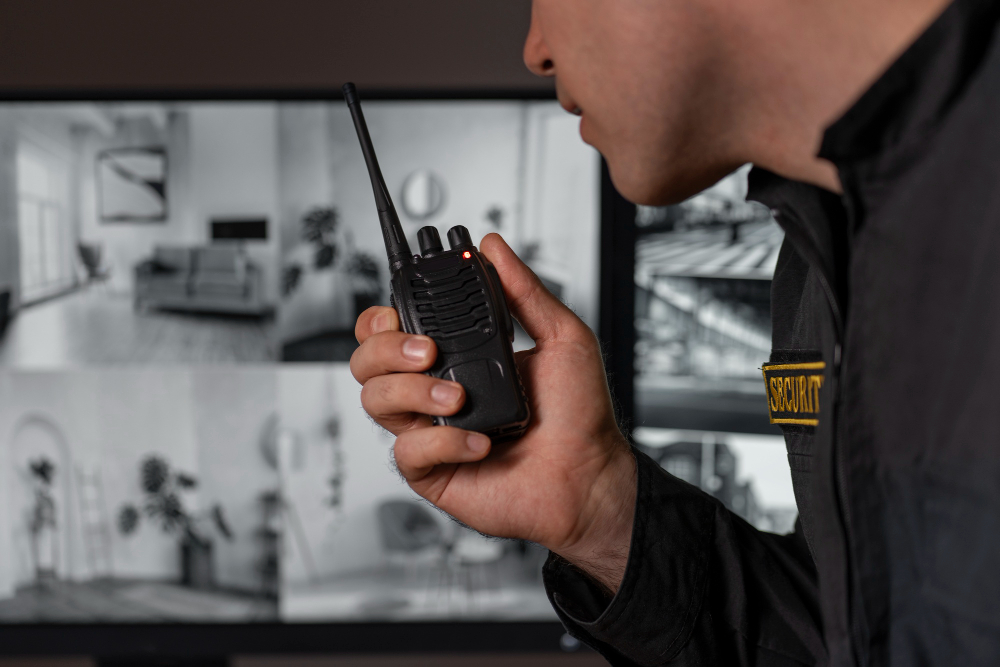Security guards play a critical role in maintaining safety, preventing crime, and protecting property. Whether in commercial buildings, residential complexes, industrial sites, or events, understanding the core security guard responsibilities is essential for businesses, clients, and aspiring security professionals.
At Alpine Protection Services, we provide highly trained security guards who go above and beyond to ensure safety, compliance, and peace of mind for all clients across Canada, including Edmonton, Calgary, and Alberta at large.
What Are the Primary Responsibilities of a Security Guard?
A security guard’s duties extend far beyond standing at a post. Their responsibilities include prevention, monitoring, reporting, and emergency response. Here’s a detailed look:
1. Monitoring and Patrolling
Security guards continuously monitor the premises to detect suspicious activity, unauthorized access, or safety hazards.
- Conduct regular patrols of buildings, parking lots, and perimeters.
- Use surveillance systems and CCTV cameras to monitor activity.
- Ensure safety equipment like fire extinguishers, alarms, and emergency exits are in proper working condition.
2. Access Control
Controlling who enters and exits a facility is a core responsibility:
- Verify identities and authorizations of employees, visitors, and contractors.
- Issue and collect visitor passes or badges.
- Prevent unauthorized individuals from gaining access to sensitive areas.
Tip: Effective access control reduces theft, vandalism, and security breaches.
3. Emergency Response
Security guards must be prepared to act during emergencies:
- Respond to fire alarms, medical emergencies, or natural disasters.
- Provide first aid or CPR if certified.
- Coordinate with police, fire, or medical teams as needed.
- Evacuate personnel safely during incidents.
A well-trained security guard can minimize damage or injury during crises.
4. Crime Prevention and Protection
Preventing criminal activity is a key function:
- Deterring theft, vandalism, or harassment by visible presence.
- Monitoring areas for suspicious behavior or security threats.
- Reporting and documenting incidents promptly to management or law enforcement.
Example: A security guard in a retail store monitors entrances, keeps an eye on shoplifters, and ensures compliance with store policies.
5. Reporting and Documentation
Accurate record-keeping is crucial for legal, insurance, and management purposes:
- Maintain daily logs, incident reports, and visitor records.
- Record security breaches, safety hazards, and unusual occurrences.
- Submit reports to supervisors for review and action.
Well-documented reports help organizations analyze trends, identify vulnerabilities, and improve security protocols.
6. Customer Service and Assistance
Security guards often serve as the first point of contact for visitors:
- Guide visitors and provide information or directions.
- Handle complaints or resolve minor disputes professionally.
- Ensure employees, clients, and guests feel safe and welcomed.
Combining security expertise with customer service skills adds immense value to any organization.
7. Compliance and Regulatory Duties
Security personnel must understand and adhere to laws, company policies, and safety regulations:
- Follow health and safety guidelines.
- Ensure compliance with fire codes, building regulations, and legal mandates.
- Stay updated on industry standards and training requirements.
Skills and Qualities That Support Security Guard Responsibilities
Effective security guards require a blend of technical and interpersonal skills:
- Observation and Vigilance – noticing small details can prevent big incidents.
- Communication Skills – clear reporting and instructions during emergencies.
- Physical Fitness – to patrol premises and respond quickly when needed.
- Problem-Solving and Decision-Making – addressing incidents calmly and efficiently.
- Integrity and Trustworthiness – guarding people and property responsibly.
Why Professional Security Guards Matter
Hiring trained security personnel ensures:
- Reduced theft and loss
- Increased safety and peace of mind
- Regulatory compliance and reduced liability
- Enhanced customer and employee confidence
At Alpine Protection Services, our security guards are equipped with the training, tools, and experience to fulfill all responsibilities professionally — from residential complexes in Edmonton to commercial facilities in Calgary.
FAQs
Q1: What are the daily responsibilities of a security guard?
Daily duties include patrolling, monitoring surveillance, controlling access, reporting incidents, and assisting visitors or employees.
Q2: Are security guards responsible for emergency situations?
Yes. Security guards are trained to respond to fires, medical emergencies, evacuations, and security breaches efficiently.
Q3: What skills should a security guard have?
Observation, communication, decision-making, integrity, and physical fitness are essential.
Q4: Why hire a professional security guard service?
Professional guards ensure safety, prevent incidents, maintain compliance, and provide reliable reporting and customer service.
Final Thoughts
Understanding security guard responsibilities is essential for businesses seeking to protect property, employees, and customers. A well-trained security guard goes beyond just standing watch — they actively prevent incidents, respond to emergencies, and support business operations.
For comprehensive, professional security services in Alberta, Canada, trust Alpine Protection Services — where safety meets reliability.
Contact Alpine Protection Services today to hire trained security guards and secure your business, property, and people.






